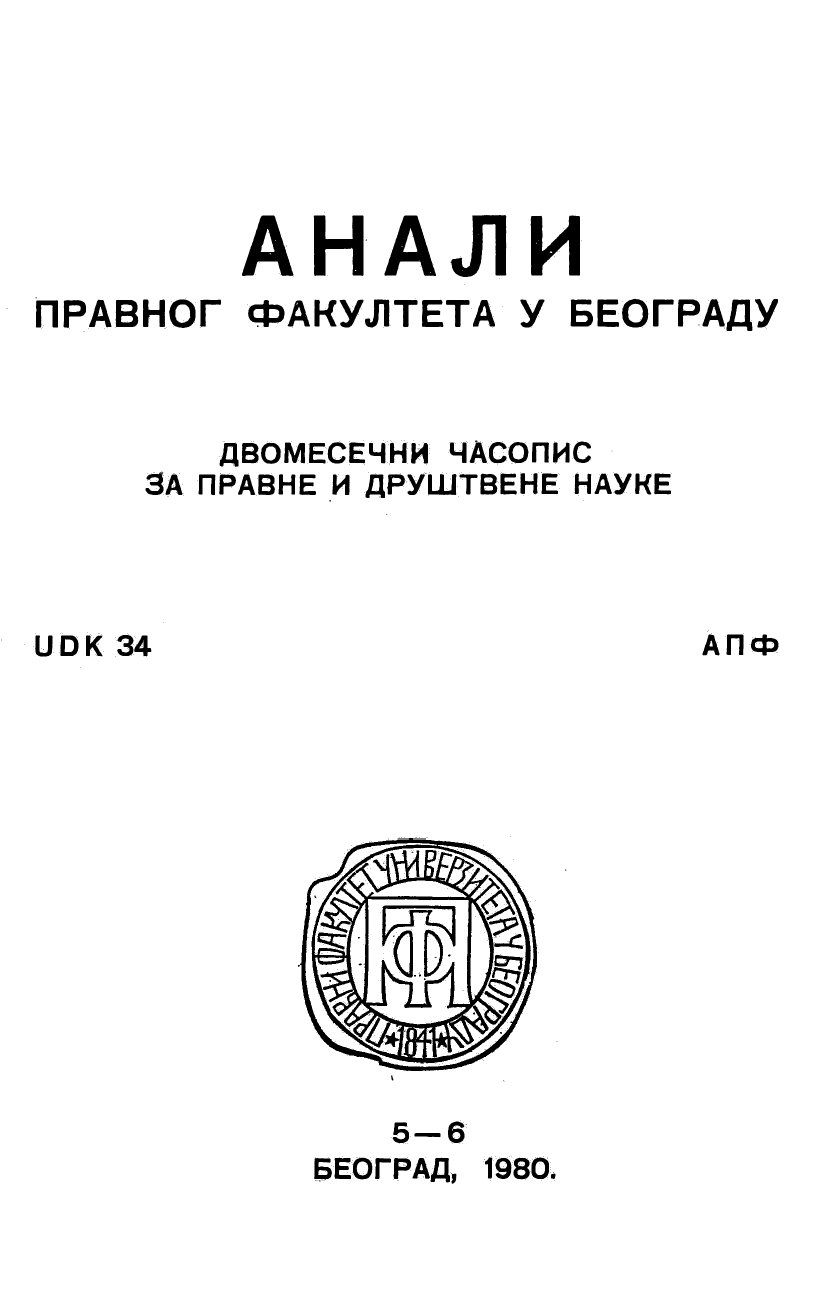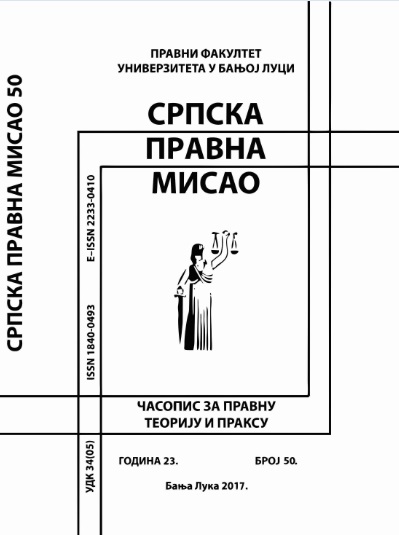
We kindly inform you that, as long as the subject affiliation of our 300.000+ articles is in progress, you might get unsufficient or no results on your third level or second level search. In this case, please broaden your search criteria.

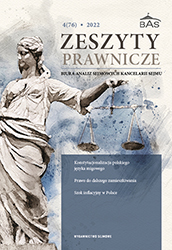
Article 22 of the Act on the Supreme Audit Office sets out the legal conditions for the adoption of resolutions by the Council of the Supreme Audit Office. Pursuant to this provision, the Council of Supreme Audit Office adopts resolutions in the presence of at least half of members of the Council, understood as the number of actual members of the Council of the Supreme Audit Office, at the moment of adopting the resolution.
More...
The author presents an analysis of legal issues related to the postulate in question and does not address the extra-legal issue of the purposefulness of introducing the postulated regulation. He points out, inter alia, that the introduction of the postulated regulation lies within the regulatory freedom of the legislator and the protection of the Polish sign language does not explicitly result from the binding provisions of the Constitution.
More...
The proposed amendment provides for the notary to be granted the status of a public official. The drafters do not address issues related to a notary’s business activities or his “status of entrepreneur”. The draft amendment does not contain a prohibition on running a chancellery or conducting business in genere. The form of the proposed changes does not allow to conclude that the intention of the drafters was to “depart” from the current solutions. Moreover there are no legal regulations establishing a general prohibition on the performance of business activities by public officials. Inclusion of notaries in the category of public officers will not result in the application to them of limitations arising from the Act on Restrictions on Conduct of Business Activities by Persons Performing Public Functions.
More...
The mandate of a councillor elected as a Deputy expires by virtue of law. A Deputy is not obliged to resign in this respect. The electoral commissioner declares the expiry of the mandate by means of a decision. In the absence of a clear time limit indicated in the Act, Deputies should be advised to resign by the date they take up their mandate. If a Deputy does not resign, he or she will lose his or her office by virtue of law three months after taking the Deputy’s oath.
More...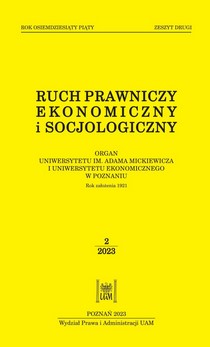
The concept of conventional acts is one of the foremost achievements of the Poznań School of Legal Theory. The aim of this paper is to resolve doubts concerning the relationships between constitutive rules and norms of conduct, whereby the norms bear on conventional acts in a twofold manner. On the one hand, they may regulate the performance of such acts and, on the other, attach normative consequences to a performed act, as a result of which the normative situation of certain entities changes. Focusing on the latter aspect, it was necessary to compile a catalogue of possible normative consequences and to decide whether such consequences are prerequisite if an act is to be qualified as conventional. The analysis warrants the conclusion that the existence of a conventional act does not depend on whether it entails normative consequences. The correlation between a conventional act and its normative consequences is not necessary, but merely functional, although its strength may vary. Also, it is likely that the confusion in this regard stems from the failure to distinguish between two types of effects which the acts in question produce, assuming that certain effects do in fact ensue. Specifically, one has to distinguish between an effect understood as the outcome of a conventional act and an effect understood as its normative consequence. It is presumed here that the effect of a conventional act is distinguished by a relevant constitutive rule, while any normative consequences following its performance should be approached only as a corollary of competence norms. Assuming that the relationship between constitutive rules and norms of conduct is functional enables the rules to be recognized as independent with respect to the norms. Furthermore, it also implies the need for two concepts of competence to be distinguished, namely conventional competence and normative competence.
More...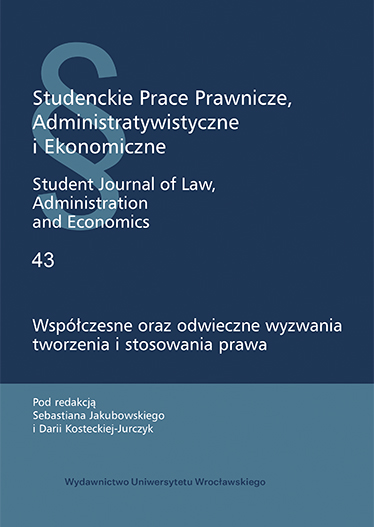
The article concerns the issue of a constitutional court as a tribunal established by law according to the European Convention on Human Rights. The considerations are based on the ruling of the European Court of Human Rights from 7th May 2021 in Xero Flor vs. Poland case (application no. 4907/18). The applicant company demanded to recognize that its right to a fair civil trial was breached. The root cause for that was a discontinuation of proceedings based on a consti-tutional complaint submitted by a court, one member of which was elected as a judge in a faulty procedure. The Court made an interpretation of the notions of a “tribunal” (which also means constitutional court) and “tribunal established by law”, which are contained in Article 6 § 1 of the European Convention on Human Rights. The author agreed with the conclusions of the Court and presented arguments for such an understanding of these notions.
More...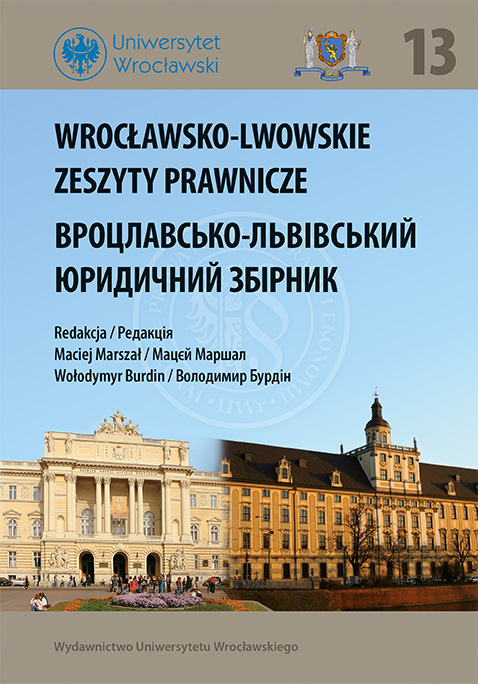
The purpose of the article is an attempt to research the origin and content of the doctrine of “inherent” powers of the head of state, as well as to clarify the expediency of its implementation in Ukrainian realities. The relevance of this research direction is due to the fact that during the years of Ukraine’s independence, most heads of the state tried to increase their powers not only by amending the Constitution, but also by applying the aforementioned doctrine in practice.Today, the Constitutional Court of Ukraine takes a restrained position on the issue of implementing “inherent” powers. Thus, the Court has repeatedly confirmed its legal position that the Fundamental Law does not grant the Verkhovna Rada of Ukraine the right to determine in its acts the powers of the parliament and the head of state beyond those established by constitutional norms. However, such legal positions did not receive universal support among scientists and have already become the subject of discussions.Although analyzing the Constitutional Court’s decisions passed in recent years leads to the conclusion that “inherent” powers have no place in constitutional jurisprudence, some decisions of the constitutional jurisdiction body in the past decades still leave room for the implementation of such powers. Thus, the analyzed decisions made it possible to reach the conclusion that the search for the “inherent” powers of the President should be carried out in areas included in the scope (responsibility) of the head of the Ukrainian state — namely, foreign policy activities, national security and defense. However, it should be noted that the further development of these ideas in practice is currently impossible without a review of the existing constitutional jurisprudence.Sharing the opinion on the need to establish “inherent” powers of the President, we consider it necessary to emphasize the necessity for their strict regulation and the presence of clear limits of their application. Such limits seem extremely important, since under other conditions there is a risk of the President getting the impression that arbitrary development of this doctrine is possible. Therefore, the establishment of “inherent” powers in the national doctrine for the head of state should be accompanied by effective constitutional control, and the purpose of such powers is to take effective and urgent measures necessary for the performance of basic duties. After all, in conditions when state institutions are weak, the risk of usurpation of power is no less a threat than the aggressive policy of Ukraine’s eastern neighbor. Under such conditions, flirting with the doctrine of “inherent” powers can easily turn from the saving straw of the nation into its enslaver.With that in mind, the article analyzes the viewpoints already available in the scientific doctrine regarding the limits of application of the doctrine of “inherent” powers and makes proposals for their further implementation and improvement, in particular through the activities of the body of constitutional justice.
More...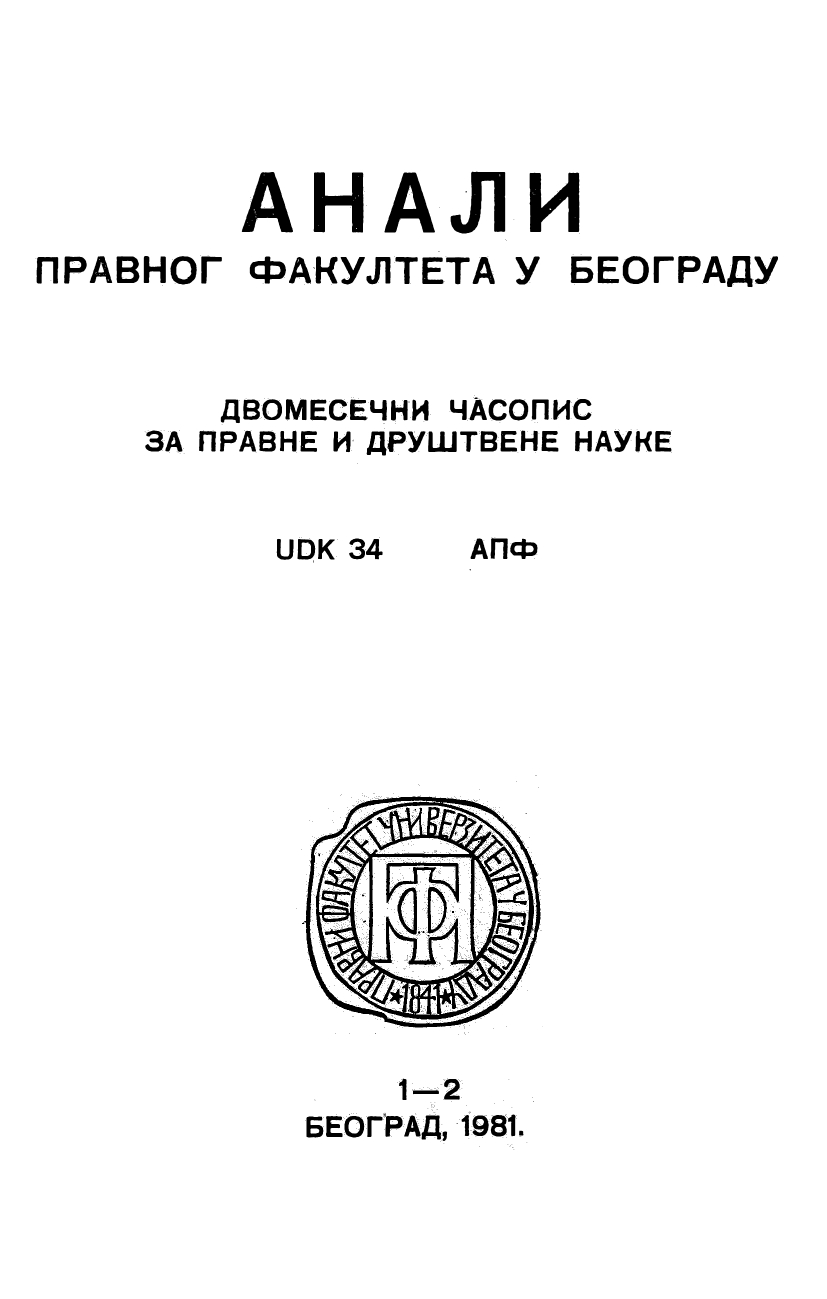
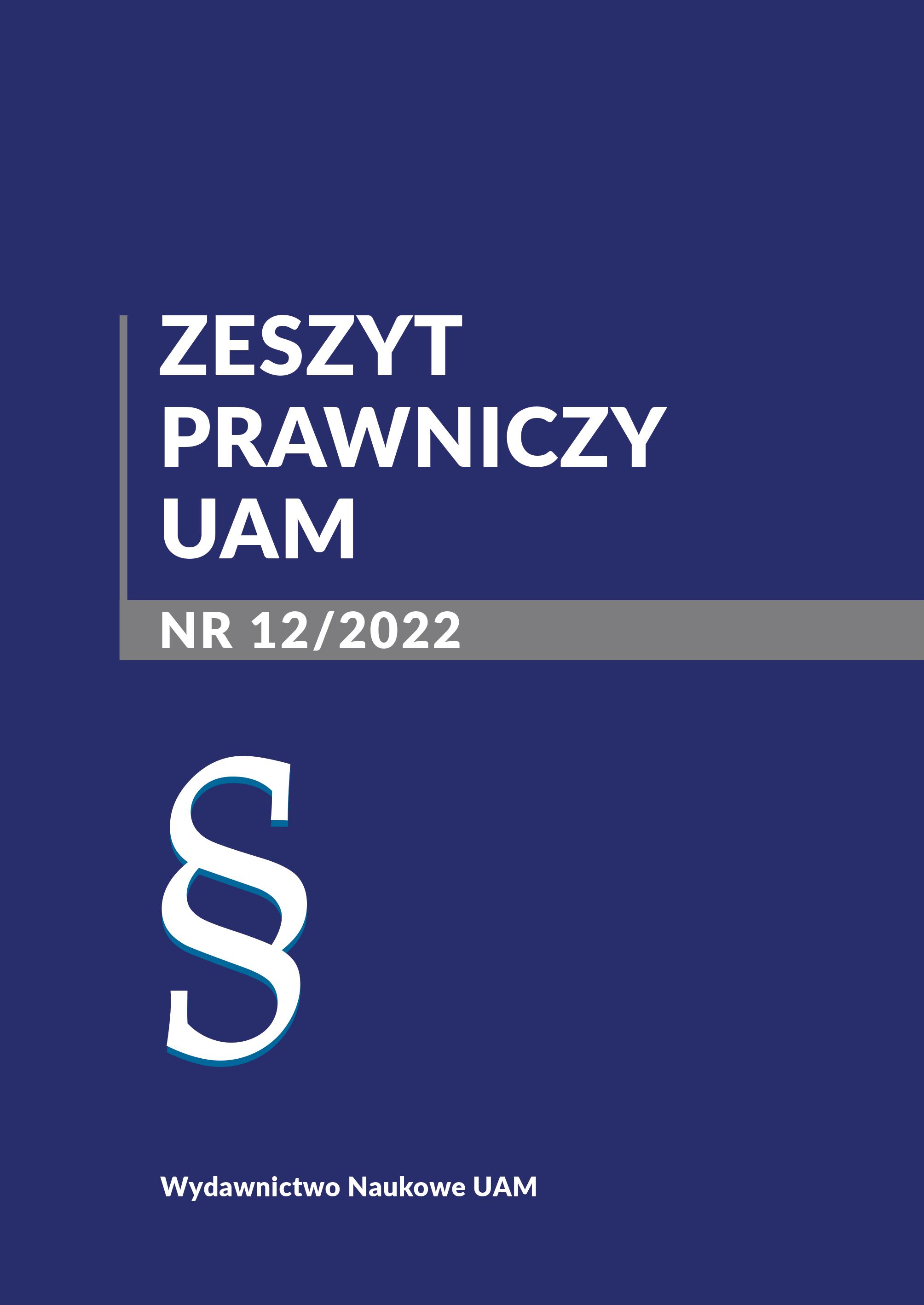
The testator’s disability, which isn’t mentioned in legal provisions regulating testamentary inheritance, is of significant importance for possibility of shaping in a will the fate of owned property after the testator’s death The aim of this article’s to show the relationship between the testator’s disability and his testamentary capacity. Making valid testamentary dispositions requires full legal capacity. Therefore a natural person with limited legal capacity or without legal capacity has been deprived of the right to make a valid declaration of will mortis causa. Since the conditions for a declaration incapacitation are: mental illness, mental retardation or other types of mental disorders, an intellectually disabled person deprived of full legal capacity, cannot make a will.
More...
The Polish Senate’s electoral system is based on the majority formula for 33 years. The Electoral Code introduced a new element – single-member constituencies, which, in combination with the relative majority, imply the danger of omitting significant part of votes and the threat of winning by candidates with no majority support. The postulate of an absolute majority with the possibility of a second round of voting seems to be a solution supporting chamber’s representativeness and accepted in doctrine. The author also examines the last three elections in terms of the influence of the required majority on their results. The conclusions confirm the legitimacy of the formulated postulate and indicate the need of comprehensive reform of the Senate’s electoral system.
More...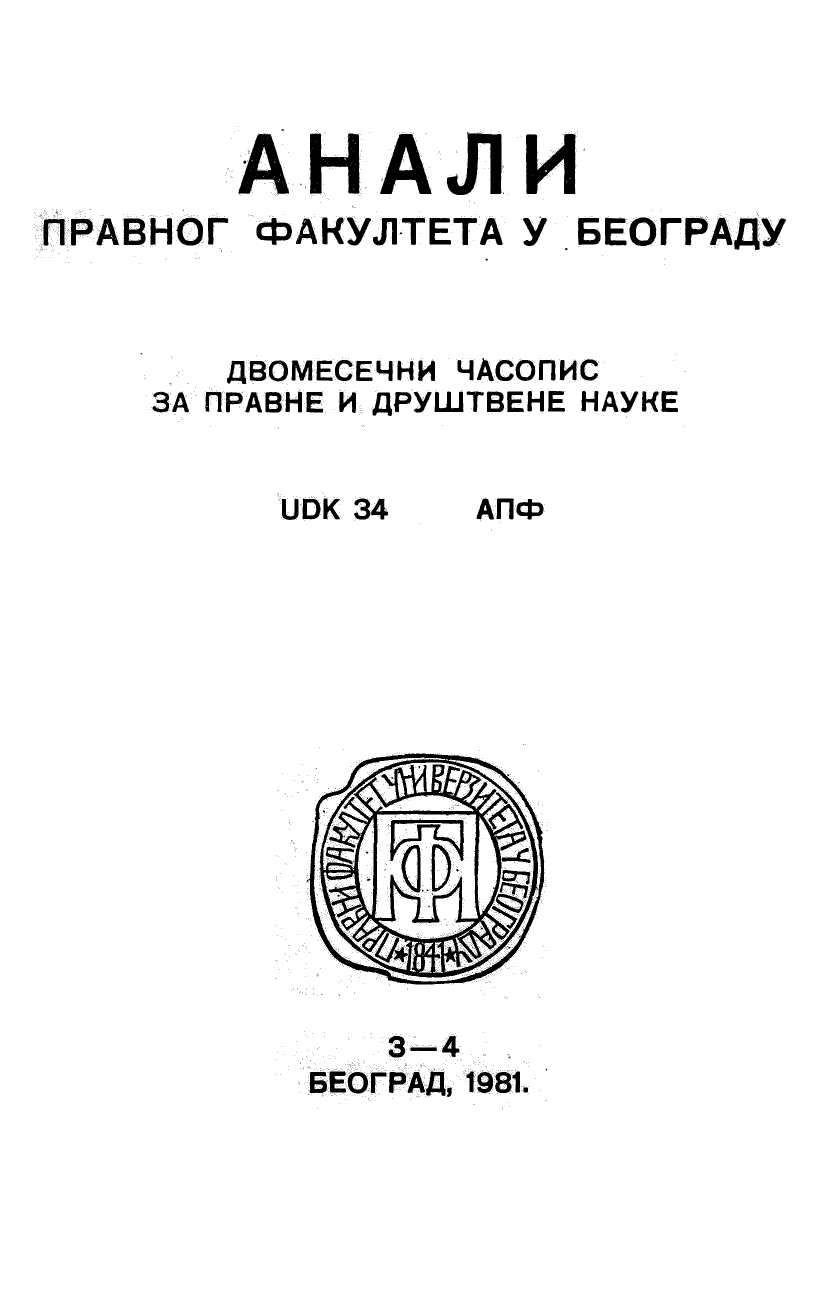
In the development of socialist constitutionality in Yugoslavia so far, there can be distinguished and also asserted, among others, two at first glance contradictory characteristics or tendencies. The first is reflected in its exceptional dynamism and the second in the relative stability of the fundamental constitutional institutions and solutions expressing the essence of the continuity of constitutional and legal order. The bringing into accord or transition of the relative contradiction between the mentioned tendencies in the development of constitutionality represents a lasting component of the social being of the constitutional and political system in socialist Yugoslavia. In the main, the mentioned characteristics of our constitutionality are not in contradiction among themselves, if we bear in mind the nature of ,.hard” constitutionality which is being developed in our country, meaning the place and role of the Constitution in the system of socialist self-management. Namely, the relatively frequent changes or amandments of the Constitution in the recent period of development of our country were the result of a very dynamic development of the social, economic and political system, on the one hand, and the aspiration to make the Constitution not only the reflection of real social relations (in the base of society) but also the generating force of their further development, on the other hand. In that context, it is very significant that all constitutional amendments (changes) made so far have been directed at the further strengthening and improvement of the fundamental values of the system of socialist self-managament democracy, Ihis statement has been particularly asserted in the most recent constitutional amendments of 1981. They mark a unique confirmation of the continuity of constitutionality in Yugoslavia. The most recent constitutional amendments represent an act of additional improvement of the body of the constitutionally established system, Their aim and essence were formulated by President Tito at the VIII Congress of the Trade Union Confederation of Yugoslavia. The initiative for these constitutional amendments President Tito founded on the critical review of the realisation or achievement of the constitutional determinations of 1974, especially in respect of the principles of collective working activities, decision-making and calling to account-that is-responsibilities. Therefore, the amendments devote their utmost and particular attention to these very principals. Besides that, these constitutional amendments (changes) are also an extraordinary assertion of the constitutionality of the constituent republics and provinces.
More...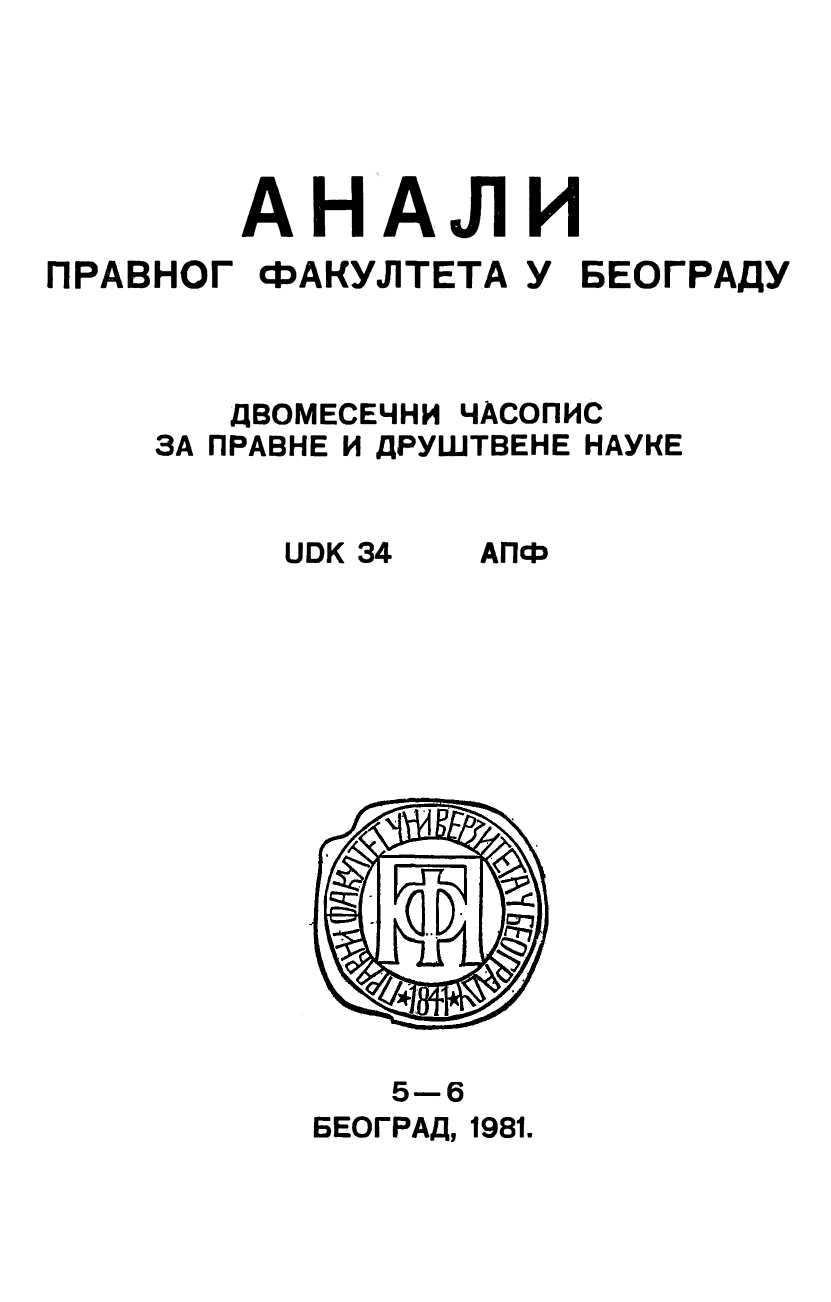
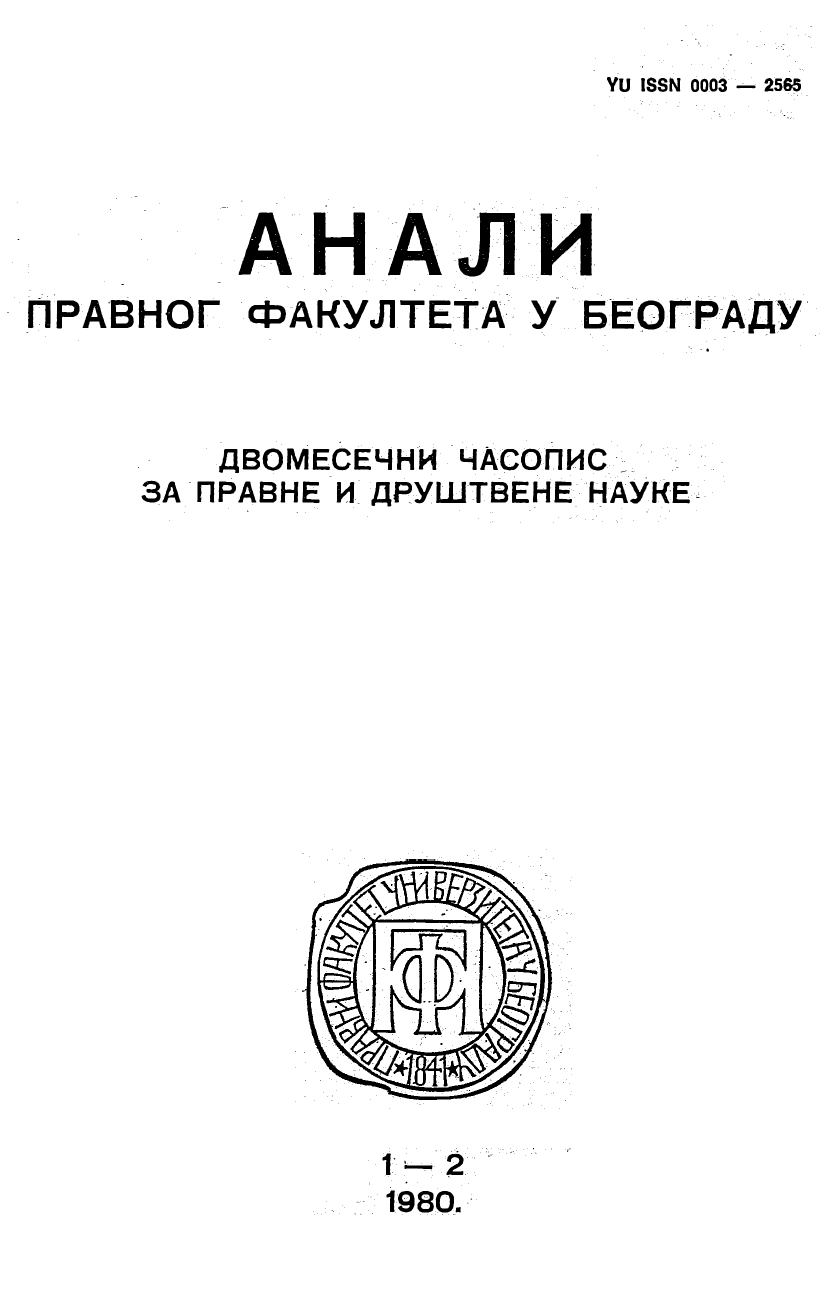
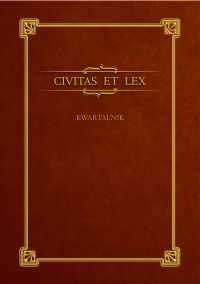
Current information on the activities of public administration bodies, central bodies, as well as bodies of local government units, including entities appointed by them, allows for effective control of their actions. Thanks to the information obtained in this way, it is possible to carry out inspections of these entities on many levels, not only by the authorities authorized in this respect, but perhaps above all by civil society, starting from the activity of individual citizens or groups of citizens, through more or less organized entities, i.e. associations, institutes and non-governmental organizations. The purpose of this article is to analyze the role of information about public authority in terms of the possibility of increasing social control and the use of the constitutional right to information in building a civil society. The principle of civil society should be considered as the foundation of social participation, which is to contribute in particular to the realization of the common good of all citizens. The author focuses on the analysis of normative solutions contained both in the Basic Law and in other legal acts. The paper uses the dogmatic method of analyzing legal acts. In addition, the literature on the subject and case law were used.
More...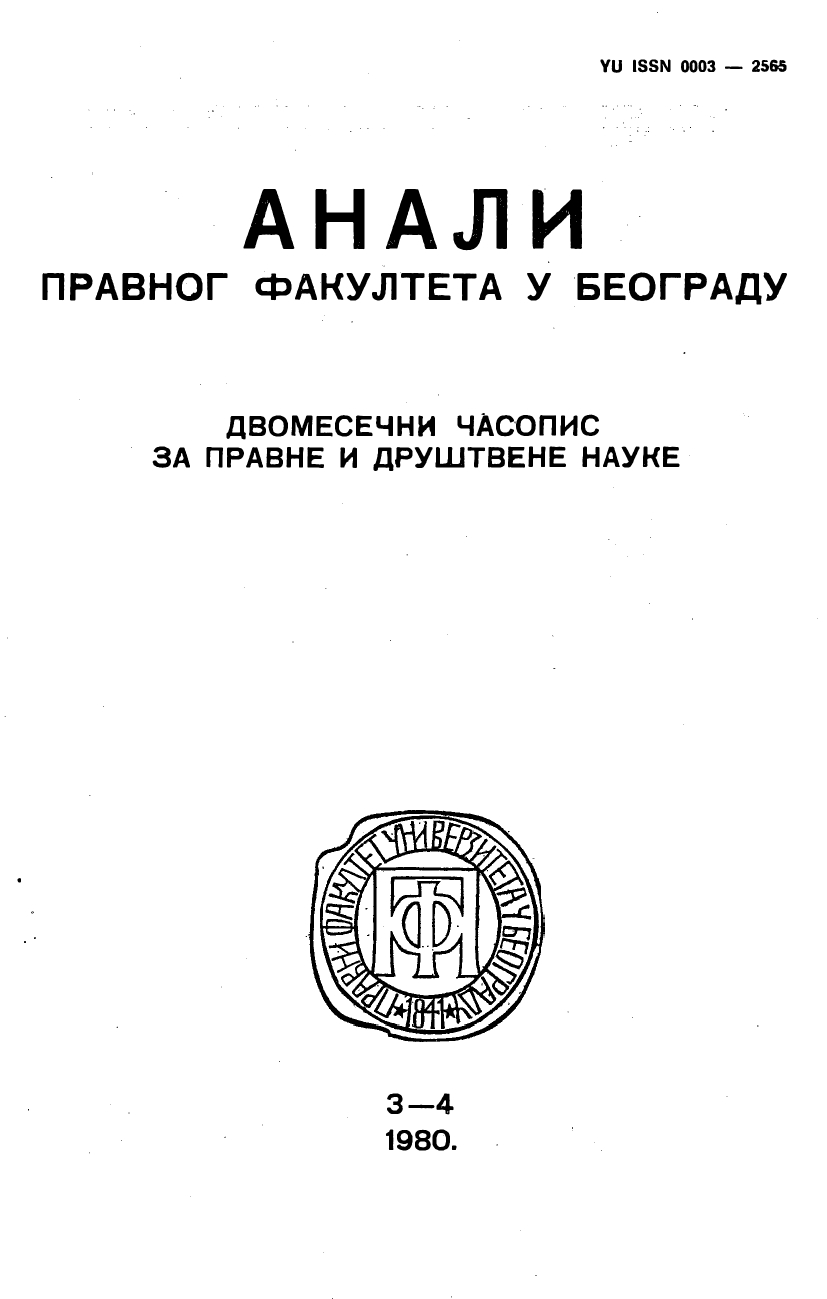
In this work the author underlines the independence of the judges and their reliance on the Constitution and the Law as the constitutional characteristics of the judicial function. Predominant attention has been paid to the analysis of the concept of judicial independence, although the most significant interpretations of judicial independence have also been set out. Of the diverse opinions relating to judicial independence, the most accurate in the opinion of the author is the one observing this "institute" through the relationship between the judge and the other state institutions as well as between the judge and the parties (subjects) in the procedure, finally, in relation to himself. At the same time, the author subjects the other interpretations of judicial independence to criticism (predominantly those which seek judicial independence only within certain actions relative to criminal procedure.) This critical appraisal has originated from the main determination of the author that the independence of the judge is the characteristic of his every activity in the procedure. There may only be, according to the author, excluded those activities of the judge for which there exist, or may exist, a certain interest of individuals or groups to influence the judge (in reaching decisions), while in the case of others this interest usually does not exist (in the management of the procedure, for instance.). Furthermore, the author thinks that forms of judicial independence cannot be distinguished according to the object — action or individual for which it is established, for the independence of the judge is a legal category with general, that is, common characteristics regardless of whether it is established through actions undertaken by the judge or his relationship with other parties (subjects) in the procedure. The second part of the work deals with the question of reliance of the judge on the Constitution, the law and self-managing general acts, predominantly within the scope of the principle of independence of thé court, and then as an independent principle and a correlation of judicial independence. The question of the independence of the judge in the determination of the factual situation has also been touched upon, in relation to the rules of evidence and the "social reality". The author within the context also sets forth his own point of view concerning the substitution of the term "reliance" of the judge on the Constitution and the law with the term "establishment” on the Constitution and law.
More...
